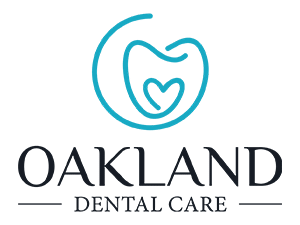What Are the Symptoms of TMJ Disorders?

TMJ disorder is a common medical condition affecting the jaw. It can come and go with frequent flare ups that cause discomfort and inconvenience.
Sometimes the symptoms of TMJ disorder can be confusing, making it difficult to determine what the problem is. Learn the common signs of TMJ disorder and when you should seek treatment.
What is TMJ Disorder?
TMJ disorder is a condition affecting the temporomandibular joints, the place on each side of the head where the lower jaw connects to the skull. When one or both of these joints becomes irritated or inflamed, it is considered to be TMJ disorder.
TMJ Signs and Symptoms
The following signs and symptoms often indicate that TMJ disorder is present:
- Pain in the jaw. Often the first sign of TMJ disorder is pain in or around the jaw. This comes from inflammation of the tissues in the jaw.
- Tight facial muscles. TMJ disorder can cause swelling, which can make the facial muscles feel tight.
- Limited movement of the jaw. TMJ disorder can make it difficult to open and close your mouth. You may find that you can’t open your mouth as widely as you are used to.
- Popping or clicking sound when moving the jaw. When you move your jaw you may hear a popping or clicking sound, which is the sound of ligaments slipping over bones and possibly even bones grinding together due to misalignment or lack of cushioning.
- Headache. TMJ can often cause headaches, especially in the temple region of the head.
- Locked jaw. Your jaw may lock up completely due to TMJ disorder, meaning you can’t open your mouth at all.
- Ear pain. The TMJ is so close to the ear canal, that the pain can often resonate in the ears. TMJ disorder is commonly mistaken for an ear infection.
When to Seek Treatment
If you experience any of the above symptoms, start by self treating the condition at home. Apply ice to the sides of your face in the area of the TMJ. Take anti-inflammatory pain medication to relieve pain and reduce the swelling and irritation from inflammation. Rest your jaw as much as possible by avoiding talking and eating a liquid or soft diet. If your symptoms don’t improve or subside in a few days to a week, contact your dentist for diagnosis and treatment.
Causes of TMJ Disorder
There are a number of potential causes of TMJ disorder, such as:
- Teeth grinding. Grinding your teeth can put strain on your TMJ, causing irritation.
- Excessive chewing. If you are constantly chewing, whether it's gum or snacks, your jaw may be overworked and become inflamed.
- Eating hard or chewy foods. You may notice TMJ symptoms after chewing something hard or particularly chewy, such as nuts or jerky.
- Chewing or biting non-food items. If you tend to chew on pens or other items, or if you use your teeth to open things, it can cause irritation to your jaw.
- An injury to the jaw. A blow to the side or underside of your jaw can cause TMJ disorder or a flare up.
- Arthritis. Arthritis can affect any joint in your body, including your TMJ.
- Autoimmune diseases. Some autoimmune diseases can cause inflammation in the body that may spread to the TMJ.
Have Symptoms of TMJ Disorder? Seek Treatment Today
If you have persistent symptoms of TMJ disorder that don’t go away or keep coming back, Oakland Dental Care can help. We provide diagnosis and treatment for TMJ disorder that gets to the source of the problem for lasting relief of your symptoms.
Call 201-337-7733 or contact us today to learn more and schedule an appointment.
Frequently Asked Questions About TMJ Disorder
Why see a dentist for TMJ disorder?
In addition to teeth, dentists specialize in the support structures for the teeth, including the jaw. A dentist can not only diagnose TMJ disorder, but analyze the cause to determine the best course of treatment to provide lasting results.
What treatments do dentists provide for TMJ disorder?
Dentists can provide injections such as Botox that relaxes the tensed up muscles in the jaw to relieve pain and improve range of motion. We can also provide you with a custom bite splint to help realign your jaw to relieve TMJ symptoms.


